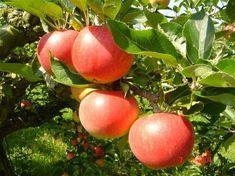
The English apple season is on course for its earliest start since records began as growers continue to push the boundaries of the home-grown season.
Discovery apples are likely to be available at the end of July at the beginning of an “extraordinarily early” season, according to industry body English Apples & Pears (EAP).
With “very small quantities” of Royal Gala from the 2010-11 season still available, EAP chief executive Adrian Barlow praised an industry in which 10 years ago “people doubted we could take Gala into January”.
He attributed the two-to-three week earlier start on last year to “very, very unusual weather patterns”, with warm weather in April and air frost in May.
English dessert apples saw a six per cent growth in sales through the multiple retailers last season, in addition to 13.4 per cent growth the year before.
Royal Gala enjoyed an 18 per cent increase in sales due to increased production, Cox was “static” and Braeburn sales fell three per cent because of a fall in production due in part to “a tendency for Braeburn to be
bi-annual bearing”, according to Barlow.
He also issued a plea for Cox growers to attempt to reduce acreage. EAP estimates that production needs to be reduced by around 10-15 per cent.
“Cox sales have been static - that’s quite surprising and bluntly it’s something we want to address. I do not think that Cox is going to disappear at all, but for the last five years we have been of the opinion that there’s been too much English Cox production.
“The only way to sell that excess is through price promotion and that affects growers’ profitability.”
It is as yet unclear how the 2011-12 top-fruit season will pan out but Barlow suggested the adverse conditions may have either thinned some of the trees naturally, reducing the need for hand thinning, or simply reduced the overall volume of fruit.
However, new orchards coming on stream in the South East and West Midlands are likely to boost volumes of Braeburn and Royal Gala as well as new varieties. Further volumes are expected to a lesser extent from Wisbech in Cambridgeshire.



